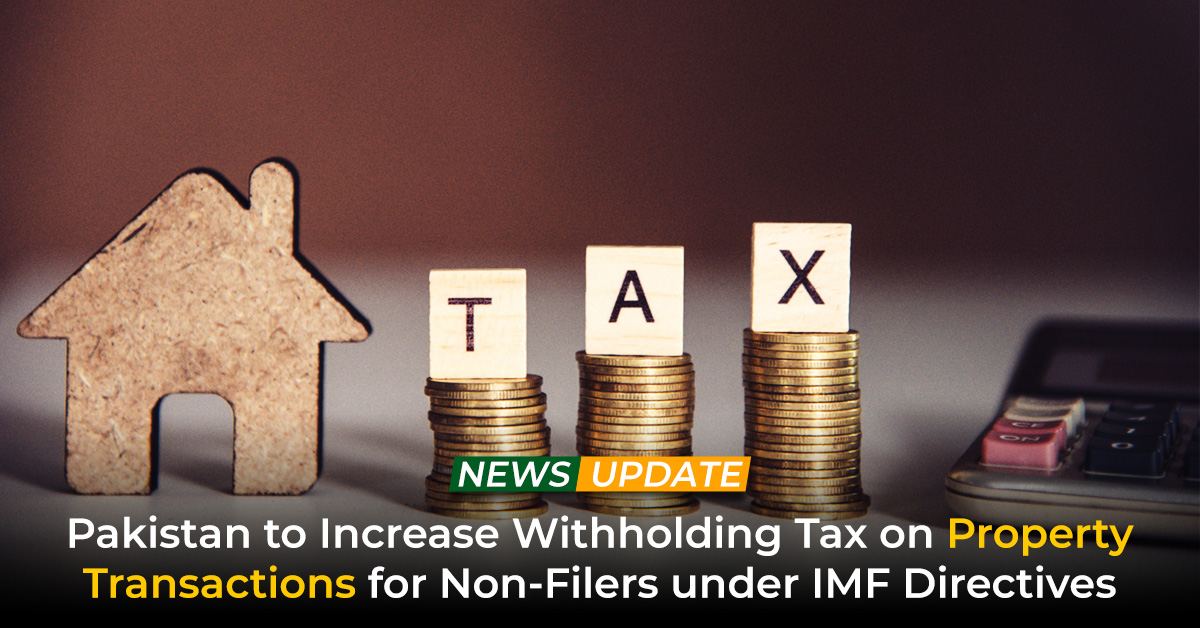Islamabad: The Pakistan Government, under directives from the International Monetary Fund (IMF), has announced plans to hike taxes on property transactions for both filers and non-filers. This move is part of a broader strategy to increase revenue and meet the fiscal targets set by the IMF. The new tax measures will be officially introduced in the upcoming budget announcement, aimed at raising the cost of doing business for non-filers and thereby encouraging more individuals to formalize their tax status. The announcement came through an article published on June 12.
According to informed sources, non-filers will experience a significant increase in their tax burden. The withholding tax on property sales for non-filers is proposed to double from the current 3-4% to a higher rate. Additionally, the withholding tax on property purchases for non-filers is expected to rise substantially by 20-25%. These adjustments are designed to dissuade tax evasion and increase government revenue from the property sector.
The new tax rates will apply across three investment categories: properties valued up to PKR 50 million, those between PKR 50-100 million, and those exceeding PKR 100 million. This tiered structure ensures that higher-value transactions contribute more significantly to the tax revenue. The government’s objective is to collect up to PKR 70 billion from the property sector in the next fiscal year, a substantial increase from previous collections.
Initially, the IMF had recommended more aggressive progressive tax rates, with suggestions increasing to 35% for both filers and non-filers. However, the Pakistani government has opted for a more moderate increase, adjusting the rates to balance the need for revenue with the potential economic impact on the real estate market.
This decision reflects the government’s ongoing efforts to broaden the tax base and improve compliance. By imposing higher taxes on non-filers, the authorities hope to incentivize more people to register as filers and participate in the formal economy. The increased revenue is intended to support various fiscal measures and development projects, aligning with the IMF’s recommendations to stabilize the country’s economy.
Implementing these new tax measures will be closely monitored, and further adjustments may be made based on their impact on the property market and overall tax compliance rates. The government remains committed to meeting its fiscal targets while fostering a fairer and more transparent tax system.



